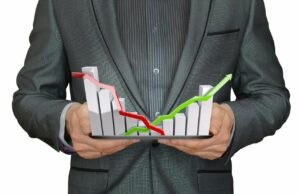
Bank Of Korea To Increase Rates By 50 Bps
On Wednesday, the central bank in South Korea is scheduled to deliver its first-ever interest rate hike of 50 basis points that will see the rate in the country increase to 2.25%. The central bank is turning up the heat in order to combat inflation in the country that has reached a high of 24 years and has not hit its peak as yet.
Inflation remains a problem
Even though the Bank of Korea was one of the first banks to have started raising interest rates last year in August, it is still trying to control inflation. In June, the inflation in South Korea hit 6.0%, which is the highest number seen since November of 1998 when there was a financial crisis in Asia.
In order to control rising prices and to provide support to a falling currency, it is expected that the Bank of Korea will hike the interest rates by another 50 basis points in its meeting on July 13th. The chances of a 25 basis points increase are low.
Currency problems
The Bank of Korea is also one of the numerous central banks that have found themselves under pressure because of the aggressive interest rate hiking campaign of the US Federal Reserve. This has pushed up the US dollar to a high of two decades, which means other currencies have found themselves under significant pressure.
This year, one of the worst-performing currencies in the emerging markets has been the South Korean won, as it has declined by 8.5% and is expected to go further. According to economists, inflation has not yet reached its peak in the country because energy costs continue to rise. Since these are not something the central bank can control, they are passed onto consumer prices.
Market analysts said that a hawkish US Federal Reserve when the balance of payments position of South Korea is under pressure also supports the idea of further tightening.
Slowing economy
However, there were also analysts who said that prudence was necessary before hiking up the interest rates by 50 basis points because higher interest rates and a slowdown in global growth would take their toll on South Korea.
Analysts said that while tighter monetary policy was needed for controlling inflation, higher rates also bring about greater external uncertainties. Household debt in the country has hit a new record, while the 19 months ending in June saw the slowest growth in the sales of South Korean goods overseas. This has resulted in concerns about the economy.
Last week, the country’s President Yoon Suk-yeol said that rising inflation is eating into the purchasing power of the people, which has put the economy into a situation of emergency. Rhee Chang-yong, the Governor of the Bank of Korea, recently asserted that they would consider the inflation data, the exchange rate, and the household debt’s repayment burden before they decide on the magnitude of the rate hike this month. As for the August meeting, analysts are expecting a hike of 25 basis points.




